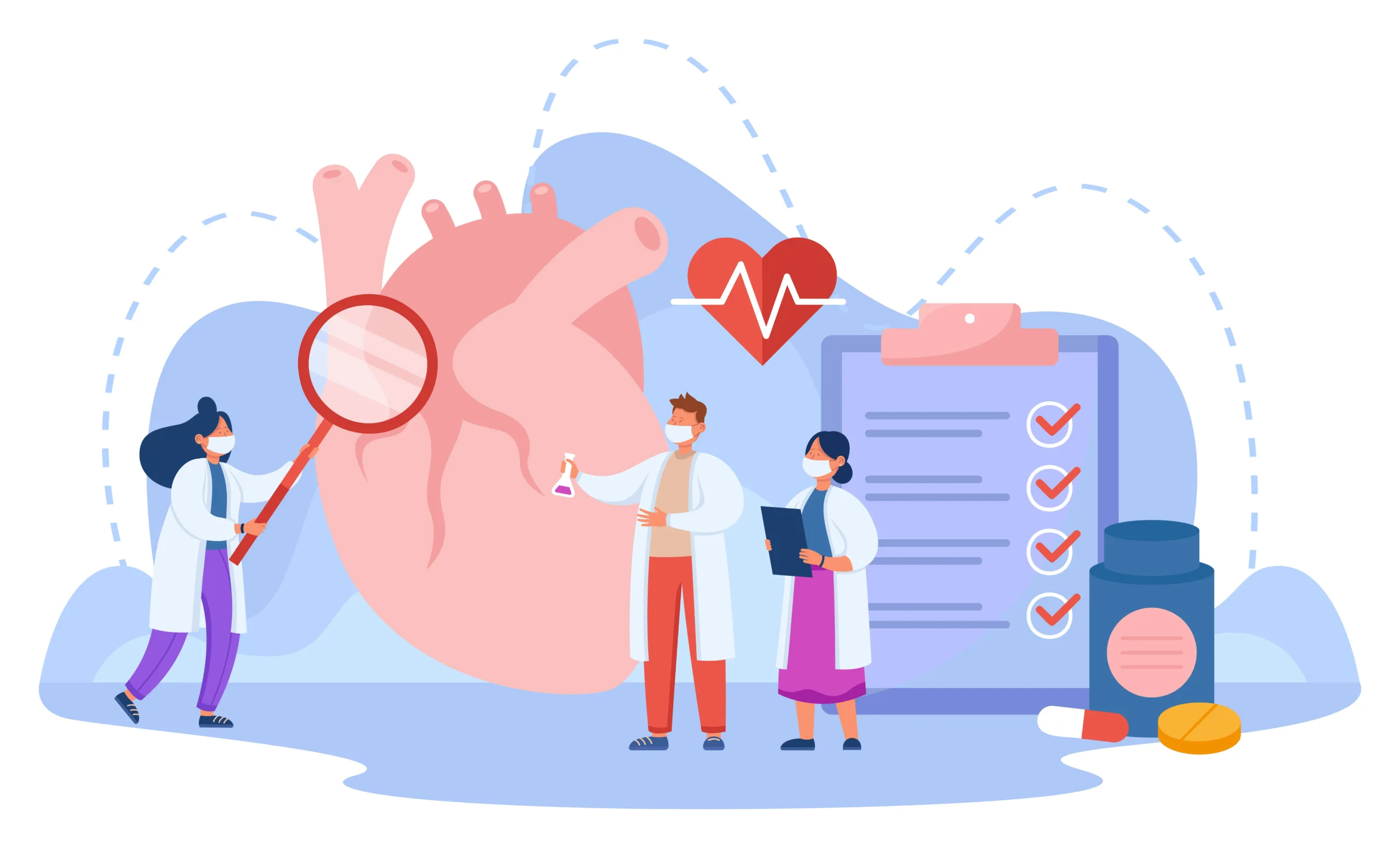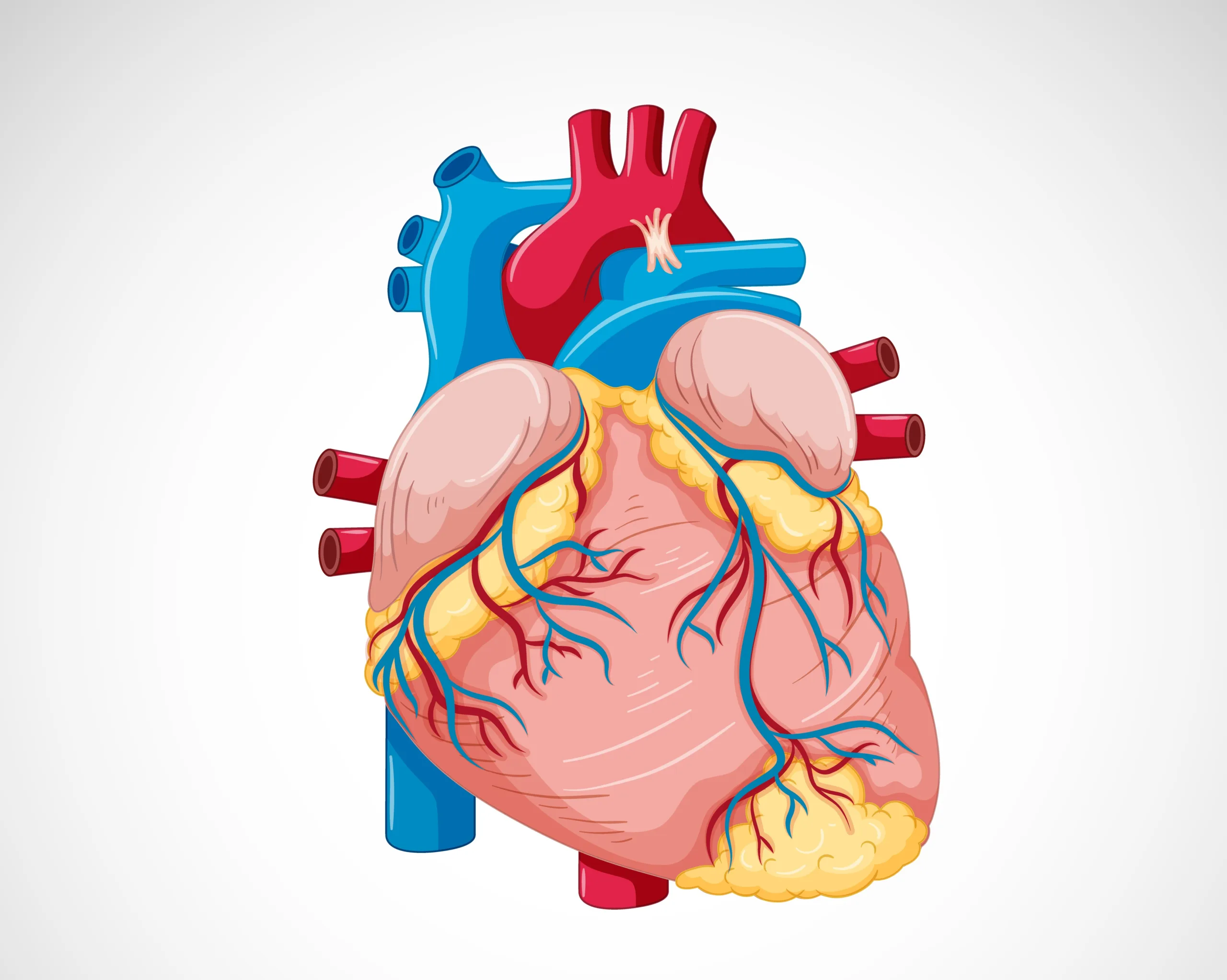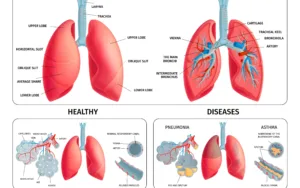
What is heart disease?
In simple words to understand the Heart disease(cardiac disease) is a disease that includes many types of heart problems. It’s also called cardiovascular disease, which means heart and blood vessel disease.
Heart disease is the leading cause of death in all over the world, but there are many ways to prevent and manage many types of heart disease.
What are the types of heart disease?
There are many different types of heart disease. Unfortunately, you may be born with some, called congenital heart disease. Other types of diseases develop during your lifetime.
Coronary artery disease (also called coronary heart disease) is the most common type of heart disease. It happens slowly over time when a sticky substance called plaque builds up in the arteries that supply your heart muscle with blood. The plaque narrows or blocks blood flow to the heart muscle and can lead to heart attack or other heart problems:
Heart attacks – when part of the heart muscle dies from loss of blood flow
Heart failure – when your heart can’t pump enough blood to meet your body’s needs
Angina – chest pain from lack of blood flow
Arrhythmia – a problem with the rate or rhythm of your heartbeat
Other types of heart diseases may affect your heart valves or heart muscle (cardiomyopathy).
What causes heart diseases?
The possible causes include unhealthy lifestyle, genetics, infections, medicines, and other diseases already present in the body.
What are the symptoms of heart disease?
Your symptoms will depend on the type of heart disease you have. You may not have symptoms at first. In some cases, you may not know you have heart disease until you have a complication such as a heart attack. You may have started feeling pain in chest areas, breathing trouble, fatigue, Palpitations (irregular heartbeats), weakness, sweating and other medical conditions are getting worsen day by day.
Now it is important to know who is more prone to get affected by heart disease. Who is more likely to develop heart diseases?
There are many different factors that can make you more likely to develop heart disease. Some of these factors you can change, but others you cannot.
First of all your age – Risk of heart disease goes up as you get older.
Gender- Some factors may affect heart disease risk differently in women than in men.
Family history and genetics- The important factor and most ignored but doctors always consider it. A family history of early heart disease raises your risk of heart disease. And research has shown that some genes are linked to a higher risk of certain heart diseases.
Lifestyle habits- Unhealthy lifestyle, over time, bad habits like smoking, drinking, even sexual addiction also can raise your risk heart disease:
Race/ethnicity. Certain groups have higher risks than others.
Eating unhealthy diet like a diet high in saturated fats, refined carbohydrates, and salt.
Physically not active – no workout, running and outdoor activities.
Drinking too much alcohol, Smoking and exposure to secondhand smoke.
Too much stress in life.
Having other medical conditions can raise your risk of heart diseases. These conditions include:
High cholesterol levels.
Diabetes.
Obesity.
Autoimmune and inflammatory diseases.
High blood pressure.
Chronic kidney disease.
Metabolic syndrome.
How are heart diseases diagnosed?
The following is done to check the health of heart.
Initially, your doctor may start by asking about your medical history, including your symptoms.
Then by asking about your family health history, including relatives who have had heart disease
Physical exam like run heart tests, blood tests and ECG.
Cardiologist (a doctor who specializes in heart diseases) is responsible for testing, diagnosis, and proper treatment.
What are the treatments for heart disease?
Treatment plans for heart disease depend on the type of heart disease you have, how serious your symptoms are, and what other health conditions you have. Possible treatments may include:
Heart-healthy lifestyle changes
Medicines
Procedures or surgeries
Cardiac rehabilitation
Can heart diseases be prevented?
You may be able to lower your risk of certain heart diseases by making heart-healthy lifestyle changes as what not to do is already mentioned in above para’s for your kind reference and managing any other medical conditions you have.


